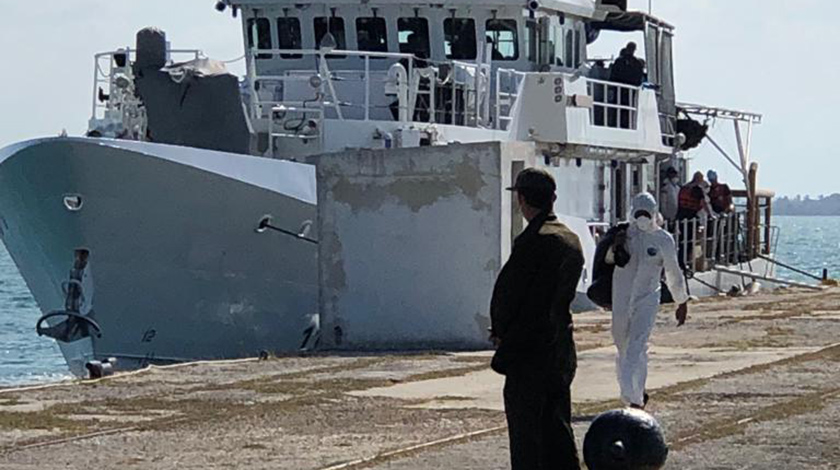The U.S. Coast Guard has reported that since the beginning of this year, more than 3,000 Cuban migrants who had attempted to enter the U.S. illegally have been returned to the island.
Last week, the U.S. Coast Guard returned to Cuba 47 migrants who were on their way to Florida by sea, bringing their total to 3,045 since January. Thirty-six men, seven women and four girls were on the boat. They are mostly from the provinces of Matanzas and Villa Clara and were involved in three different illegal exit ventures that were intercepted by U.S. authorities. Three of the Cuban citizens were serving suspended sentences at the time of the departure and will now be retried the Cuban news agency ACN reported.
The administration of U.S. President Joe Biden ordered new migration rules earlier this year. They provide for issuing 30,000 visas each month to people from Cuba, Nicaragua, Venezuela and Haiti who are willing to enter the country. At the same time, illegal border crossings are now subject to deportation. Those who are apprehended also lose the ability to legally travel to the United States in the future. Beyond the visa program, a sponsor called a “patrocinador” who vouches for the person entering the U.S. is now required for a two-year residency permit.
Since 2021, more than 391,000 Cubans have left the country for the United States. This represents about three percent of the population. With the agreement in effect, the number of Cuban migrants apprehended at the border dropped from 44,078 in December to 6,548 in February.
Cuban migration authorities recently reiterated their commitment to “regulated, safe and orderly migration” and warned of the life-threatening dangers of crossing the Florida Straits by sea, often in homemade boats in poor condition. At the same time, Cuba demanded that the U.S. shall fully comply with all existing bilateral migration agreements and expressed its willingness to continue rounds of talks on migration issues.
This article was first published on Cuba Heute, a German-language news portal.

